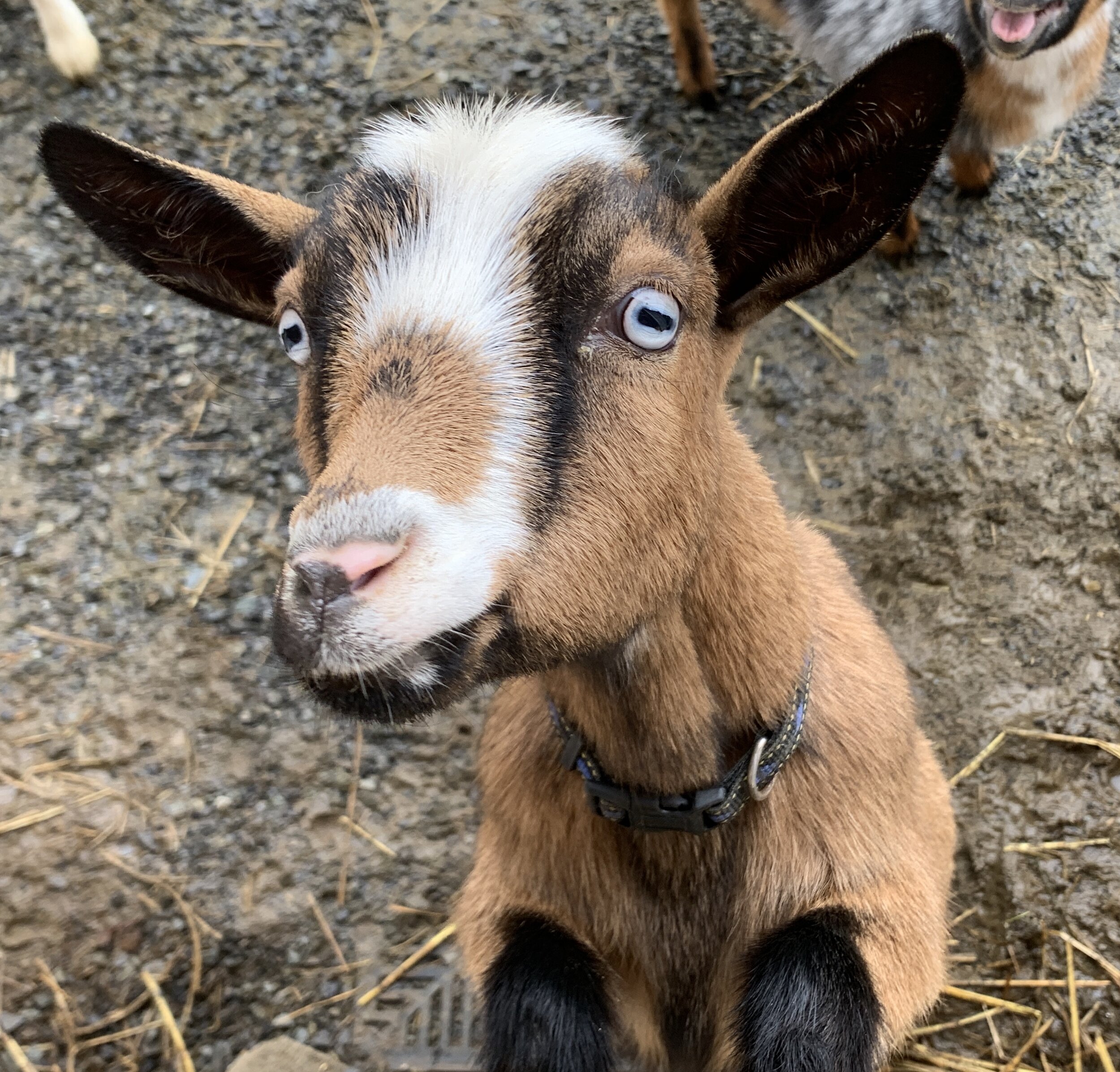Nigerian Dwarf Goats FAQ
Our friendly Nigerian Dwarf Goats. Here are some of the most frequently asked questions:
What do goats eat? Goats are herbivores and primarily eat grass, hay, leaves, and plants. They are known for their ability to forage and eat a wide variety of vegetation.
How long do goats live? The lifespan of a goat can vary depending on the breed and overall health, but on average, goats can live for 10 to 15 years.
Are goats easy to raise? Goats can be relatively easy to raise but require proper care, including shelter, food, water, and regular veterinary check-ups. They are social animals and need companionship with at least one other member of their species.
Do goats make good pets? Goats can make excellent pets, especially the smaller breeds like Nigerian Dwarf goats. They are often friendly and can be quite affectionate with their owners.
Do goats produce milk? Yes, when they’ve had baby goats (called kids), the females will produce milk as long as the kids are nursing and/or the farmer is milking them. Nigerian Dwarf Goats produce creamy milk with a high butterfat content (even more than whole cow milk) which lends a sweet taste to their milk. Last summer, we had 10 goats in milk and at their production peak, we were milking a total of 1.5 - 2 gallons of milk per day.
Can we buy milk or other dairy products from you? Unfortunately, the State of Washington regulates the sale, gifting and barter of milk and dairy products so that only licensed dairies may sell milk and dairy products. As we are not a licensed dairy, we are limited to using the milk for our own consumption. However, we are able to make goat milk soaps which are available for sale at our farm.
Can goats be used for weed control? Yes, goats are often used for natural weed control. They can graze on unwanted vegetation and help clear overgrown areas without the need for herbicides. However, care must be given to what vegetation is accessible to them as there are quite a few plants that are deadly to them including Washington’s State Flower, the rhododendron.


